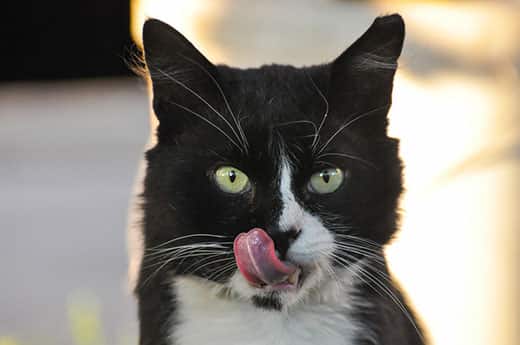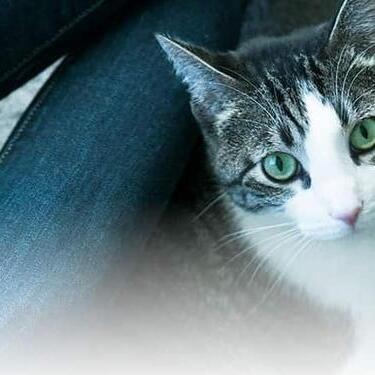
-
Find the right food for your pet
Take this quiz to see which food may be the best for your furry friend.
Find the right food for your pet
Take this quiz to see which food may be the best for your furry friend.
Featured products
 Adult 7+ Perfect Digestion Chicken, Whole Oats & Brown Rice Recipe Dog Food
Adult 7+ Perfect Digestion Chicken, Whole Oats & Brown Rice Recipe Dog FoodScience Diet's breakthrough nutrition supports ultimate digestive well-being & healthy microbiome for dogs age 7+
Shop Now Small & Mini Savory Stew with Chicken & Vegetables Dog Food
Small & Mini Savory Stew with Chicken & Vegetables Dog FoodA delicious complement to the nutrition of Science Diet Small & Mini 7+ dog food
Shop Now Adult Healthy Cuisine Roasted Chicken, Carrots & Spinach Stew Dog Food
Adult Healthy Cuisine Roasted Chicken, Carrots & Spinach Stew Dog FoodDelicious roasted chicken paired with tender vegetables in a succulent stew
Shop NowFeatured products
 Adult 7+ Senior Vitality Chicken & Vegetable Stew Cat Food
Adult 7+ Senior Vitality Chicken & Vegetable Stew Cat FoodImproves Everyday Ability to Get Up & Go
Shop Now Adult Savory Entrée Can Variety Pack Cat Food
Adult Savory Entrée Can Variety Pack Cat FoodPrecisely balanced nutrition with the delicious taste of savory minced chicken to help fuel the energy needs of cats during the prime of their life
Shop Now Adult 7+ Tender Tuna Dinner Cat Food
Adult 7+ Tender Tuna Dinner Cat FoodWith delicious chunks in a decadent gravy
Shop Now -
Dog
- Dog Tips & Articles
-
Health Category
- Weight
- Food & Environmental Sensitivities
- Urinary
- Digestive
- Joint
- Kidney
-
Life Stage
- Puppy Nutrition
- Adult Nutrition
- Senior Nutrition
Cat
- Cat Tips & Articles
-
Health Category
- Weight
- Skin & Food Sensitivities
- Urinary
- Digestive
- Kidney
-
Life Stage
- Kitten Nutrition
- Adult Nutrition
Featured articles
 Why Are Dogs and Cats So Cute?
Why Are Dogs and Cats So Cute?If waggy puppy dog tails and furry kitten yawns make you swoon, you're not alone. Why are cats so cute? And, dogs too! Let's find out!
Read More Do Dogs and Cats have Belly Buttons?
Do Dogs and Cats have Belly Buttons?Learn whether cats & dogs have belly buttons like humans, what the function is, and if there are any health concerns associated with it.
Read More Does My Pet Hate Me?
Does My Pet Hate Me?Learn tips for bonding with your pet if you've ever thought, 'My dog doesn't like me, or 'Why do I have a standoffish cat?'
Read More -


Have you noticed that your cat comes running whenever you open a can of olives? Maybe you've even offered an olive to your kitty, only to see them react with unbridled excitement. But should cats eat olives? What about olive oil? Although it can be a lot of fun to share these salty snacks with your cat, you'll want to consider a few things before you do.
Why Do Cats Love Olives?
There are no scientific studies that delve into the mysterious reasons as to why cats go crazy for olives, but there are some theories. Some cats may just love the taste or enjoy the interaction with you during treat time. Others may like the way they feel after eating olives. That's because olives, particularly green olives, contain an active chemical compound that's very similar in structure to a compound found in catnip called nepetalactone, according to Wired. Nepetalactone is the active chemical that is thought to be responsible for the silly behavior that cats exhibit after consuming the leaves, stems and flowers of catnip.
But how does nepetalactone work? As noted by Mental Floss, nepetalactone is an organic chemical that interacts with the vomeronasal organ of a cat. The vomeronasal organ is located at the top of the back of the throat in cats and other mammals, although most scientists agree that humans don't have this organ. The vomeronasal organ is basically a sensing, smelling nose-brain that cats use to detect pheromones, which are sex hormones that cats emit to let other kitties know that they're ready to breed. Nepetalactone stimulates the pheromone receptors in a cat's vomeronasal organ, causing mind-altering effects that make them act loopy, calm or agitated. After consuming nepetalactone, your kitty may roll around, act sillier and more playful than usual and have dilated eyes.
Not all cats act silly after eating catnip or olives, though. Your kitty may enjoy eating olives and experience no changes in their behavior whatsoever after snacking on them.

Can Cats Eat Olives Safely?
In general, olives are not a dangerous food for cats; they're considered safe for them to consume in very small quantities. Eating a tiny olive snack, meaning less than a whole olive, a couple of times a week should be fine for your kitty if they've eaten olives in the past without any negative side effects.
But can cats eat olives and olive oil? They're regarded as healthy snacks for humans, but olives should be considered purely empty-calorie treats for cats. And olive oil may not be a welcome addition in your cat's diet — more to come on that later. Though they may taste delicious and have an amusing effect on your kitty's behavior, olives are known to be high in sodium, and therefore, should make up no more than 10 percent of your cat's daily calories, as with any treat.
Can Cats Have Olive Oil?
Olive oil is considered a healthy part of human nutrition, but can cats eat olive oil? Yes, although it may not be a good idea.
Although olive oil isn't considered poisonous to cats, consuming too much of any fat, including olive oil, may cause your cat to experience diarrhea and vomiting. If you use olive oil for cooking, a tiny piece of food cooked in it shouldn't be a cause for alarm if your cat eats some, as long as your cat doesn't exhibit any adverse health effects afterward.


Tasty Tips
Safety Concerns About Olives
Generally speaking, there are few safety concerns with cats eating olives or olive oil other than the possibility of mild stomach upset or diarrhea. Avoid giving your kitty olives in the future if you notice any negative side effects after they consume this snack.
Olives are often stuffed with delicious human-friendly treats, like blue cheese, almonds, garlic, sausage or pickled jalapenos. While olives are not considered to be toxic to cats, the items they're stuffed with may be. Avoid giving your cat olives stuffed with anything other than a pimento or olives that have pits, as pits can be a choking hazard or can cause intestinal obstruction if they're swallowed.
The other main concern with olives and olive oil is sodium toxicity. According to the Division of Agriculture and Natural Resources at the University of California, "Harvested olives must be 'cured' to remove the bitterness in order to make them palatable." This is commonly achieved through brining. Salt-brined olives are high in sodium, and feeding these to your cat on a regular basis may expose them to harmful levels of salt.
Olives aren't a good treat if your cat has health concerns with sodium, such as heart disease or kidney disease. It's also important to note that washing olives with water doesn't reduce the amount of sodium that's present in them. However, healthy cats can typically indulge in a quarter of a large olive or half of a small olive a couple of times a week without experiencing any negative health effects. Always try to limit any snacks separate of your cat's regular food to not exceed ten percent of their daily caloric content. Also, always check with your veterinarian before feeding any food not specifically formulated made for cats.


Dr. Sarah Wooten graduated from UC Davis School of Veterinary Medicine in 2002. A member of the American Society of Veterinary Journalists, Dr. Wooten divides her professional time between small animal practice in Greeley, Colorado, public speaking on associate issues, leadership, and client communication, and writing. She enjoys camping with her family, skiing, SCUBA, and participating in triathlons.
Related products

Supports energy level and beautiful fur in mature cats

Improves Everyday Ability to Get Up & Go

With delicious chunks in a decadent gravy

Precisely balanced nutrition with the delicious taste of savory minced chicken to help fuel the energy needs of cats during the prime of their life
Related articles

Discover the benefits of Hill's line of kitten foods and how they provide complete and balance nutrition for growing kittens.

Discover which cat toys games your feline friend might like, and how they are great sources of exercise. Explore our library of articles to learn more.

Discover how to identify cat sensitive skin and what you can do to help your cat thrive from head to paw.

Brushing your cat's teeth is just as important as brushing your own. Learn signs or oral health problems in your cat and how to avoid them.

Put your cat on a diet without them knowing
Our low calorie formula helps you control your cat's weight. It's packed with high-quality protein for building lean muscles, and made with purposeful ingredients for a flavorful, nutritious meal. Clinically proven antioxidants, Vitamin C+E, help promote a healthy immune system.
Put your cat on a diet without them knowing
Our low calorie formula helps you control your cat's weight. It's packed with high-quality protein for building lean muscles, and made with purposeful ingredients for a flavorful, nutritious meal. Clinically proven antioxidants, Vitamin C+E, help promote a healthy immune system.

